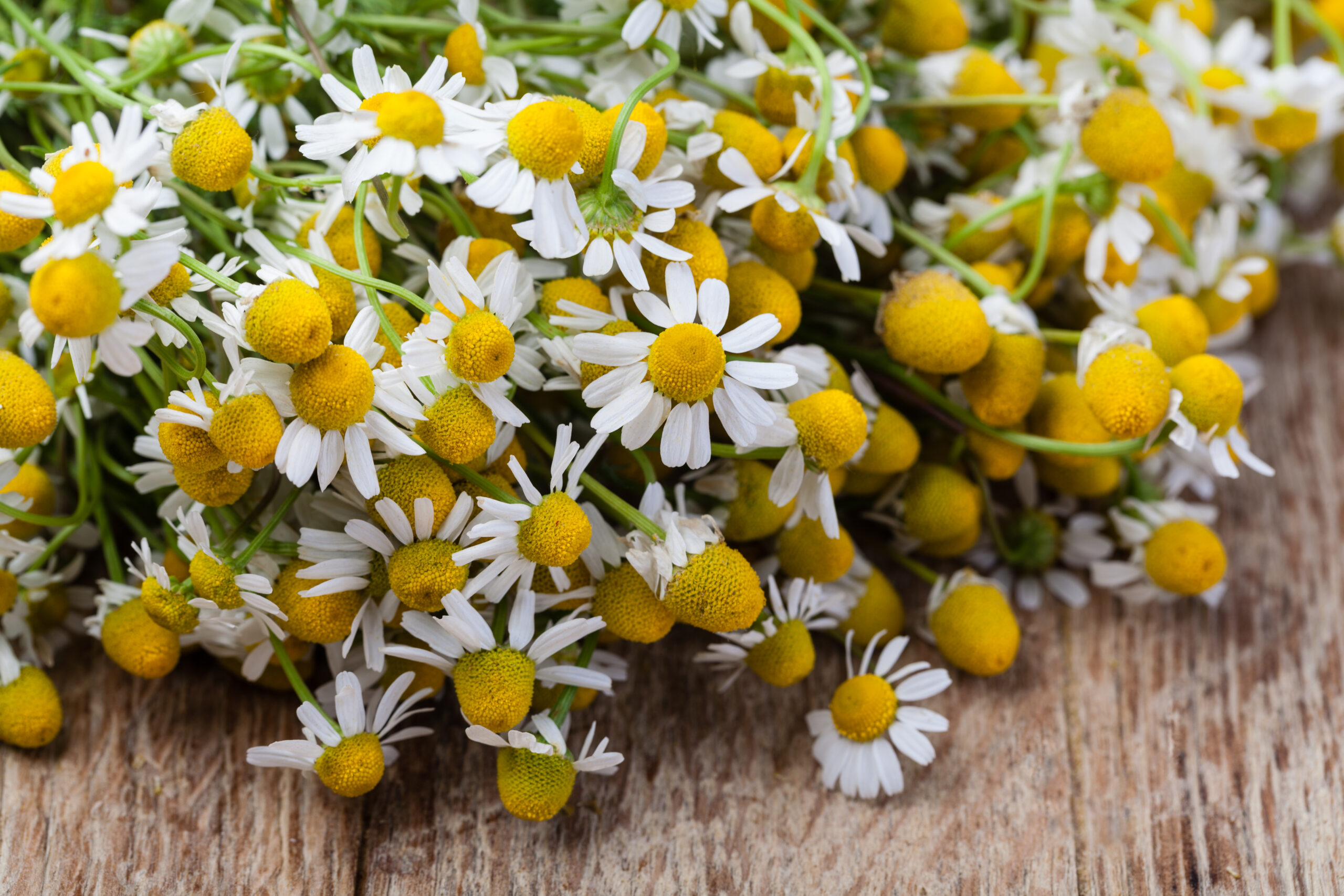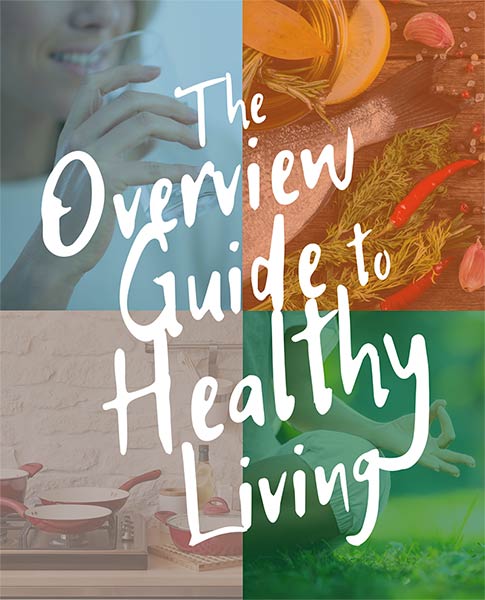Chamomile
The use of chamomile dates back the Romans, Greek and Egyptians. The two varieties of chamomile used in herbal medicine are German (Matricaria recutila) and Roman chamomile (Chamaemelum nobile). While the plants have some similar properties, they differ in their physical aspect as well as chemical composition. Roman chamomile contains high levels of esters; it also has less chamazulene than German chamomile. Roman chamomile is generally used for its anti-spasmodic and nervine propertiesr, but German chamomile is used to treat infections and inflammation.
In my home, I am never out of German and Roman chamomile essential oils. I have also been drinking Roman chamomile tea since I was an infant. In fact, chamomile tea is very popular in Italy, where I come from, and it is given to babies as little as a couple of months old to help with sleep, colics, and teething pain.
Chamomile is traditionally used as a remedy for anxiety as well as a carminative. Apigenin is a flavonoid contained chamomile which has anti-anxiety and mild sedative effects (Bone & Mills, 2013). It is also an antioxidant and anti-inflammatory. Because of my upbringing, I am biased into appreciating chamomile for its anxiolytic properties.
Chamomile is considered a sedative and hypnotic herb. While there is not yet enough clinical evidence to confirm that chamomile helps with insomnia (Adib-Hajbaghery & Mousavi, 2017), a few promising small studies show that chamomile has a positive effect on sleep disturbances and depression (Chang & Chen, 2016).
Mao et al (2014) reports that flavonoid constituents of chamomile are what gives it its anti-anxiety effect. Flavonoids like chrysin and apigenin affect certain hormones and neurotransmitters including serotonin, dopamine, noradrenaline, and gamma-amino butyric acid (GABA). Apigenin specifically has been shown to reduce GABA activity by binding to benzodiazepine receptors.
Amsterdam et al (2009) found that chamomile was effective in treating patients with mild generalized anxiety disorder (GAD). Keefe et al (2016) found that 8-week treatment with chamomile was as effective as conventional antianxiety medication in reducing moderate to severe GAD.
Chamomile is generally taken internally as infusion or liquid extract. Essential oils are used externally and diffused. Different herbal medicine forms may produce a different effect in patients. I have used chamomile on my children since they were babies to treat colics as well as restlessness. They do not like chamomile tea, so I used a few drops German chamomile essential oil in carrier oil to give them a massage after bath, and I sometimes diffuse the essential oil at bedtime.
References
Adib-Hajbaghery, M., & Mousavi, S. N. (2017). The effects of chamomile extract on sleep quality among elderly people: A clinical trial. Complementary therapies in medicine, 35, 109–114. https://doi.org/10.1016/j.ctim.2017.09.010
Amsterdam, J. D., Li, Y., Soeller, I., Rockwell, K., Mao, J. J., & Shults, J. (2009). A randomized, double-blind, placebo-controlled trial of oral matricaria recutita (chamomile) extract therapy for generalized anxiety disorder. Journal of Clinical Psychopharmacology, 29(4), 378–382. https://doi.org/10.1097/JCP.0b013e3181ac935c
Bone, K. & Mills, S. (2013). Herbal therapeutic systems. Principles and Practice of Phytotherapy. https://doi.org/10.1016/b978-0-443-06992-5.00001-3
Chang, S. M., & Chen, C. H. (2016). Effects of an intervention with drinking chamomile tea on sleep quality and depression in sleep disturbed postnatal women: a randomized controlled trial. Journal of advanced nursing, 72(2), 306–315. https://doi.org/10.1111/jan.12836
Keefe, J. R., Mao, J. J., Soeller, I., Li, Q. S., & Amsterdam, J. D. (2016). Short-term open-label chamomile (Matricaria chamomilla L.) therapy of moderate to severe generalized anxiety disorder. Phytomedicine : international journal of phytotherapy and phytopharmacology, 23(14), 1699–1705. https://doi.org/10.1016/j.phymed.2016.10.013
Mao, J. J., Li, Q. S., Soeller, I., Rockwell, K., Xie, S. X., & Amsterdam, J. D. (n.d.). Long-Term Chamomile Therapy of Generalized Anxiety Disorder: A Study Protocol for a Randomized, Double-Blind, Placebo-Controlled Trial. https://doi.org/10.4172/2167-0870.1000188

